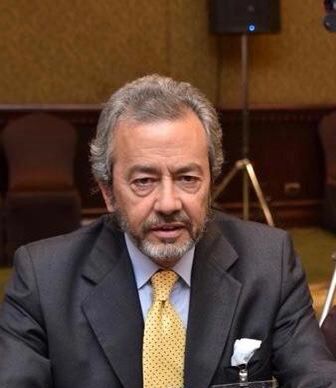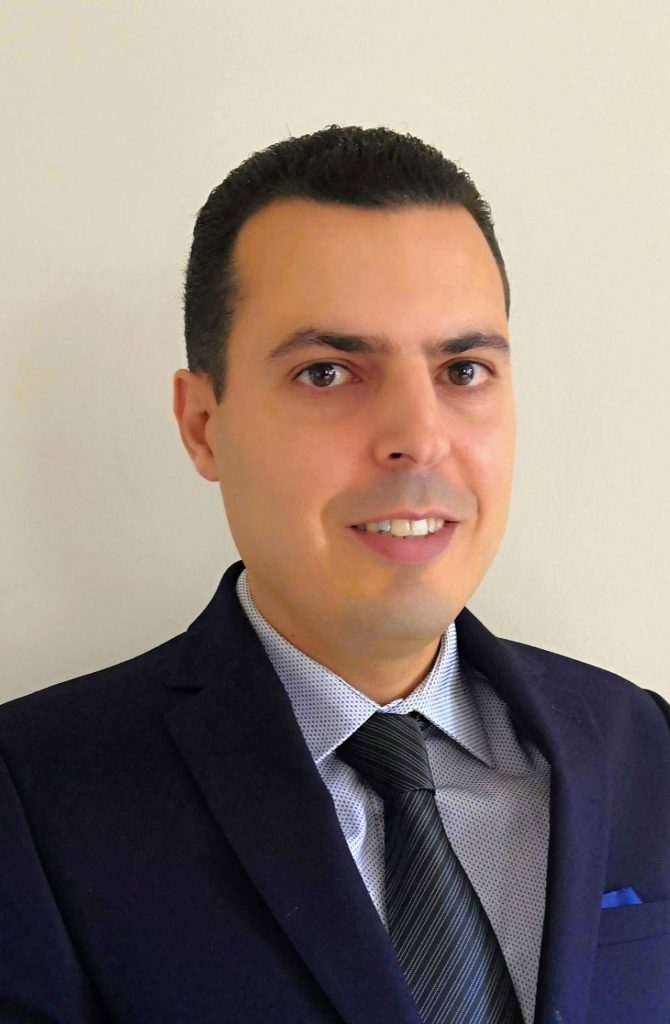
Prof. Andrey Koucheryavy Russia, Bonch-Bruevich Saint, Petersburg State University,of Telecommunications, Communication Networks and Data Transmission department
After graduating from Leningrad University of Telecommunications in 1974, A. Koucheryavy joined Telecommunication Research Institute LONIIS, where the worked till October 2003 (from 1986 to 2003 as the First Deputy Director). Dr. A. Koucheryavy holds Professor position at the Bonch-Bruevich St. Petersburg State University of Telecommunications (SUT) since 1998. There, in 2011 he became a Chaired Professor in “Telecommunication Networks and data transmission” department. Dr. A. Koucheryavy was an advisor of the Central Science Research Telecommunication Institute (ZNIIS) from 2003 to 2010. Co-founder of the International Teletraffic Seminar (1993, 1995, 1998, 2002); founder of the model network for digital networks at LONIIS (1997); co-founder of the model network for packet networks at ZNIIS (2004); co-founder of the Internet of Things Laboratory (2012) and Quality of Experience and IPTV Laboratory (2014) at SUT. Chair of the Scientific school on teletraffic theory in LONIIS (1990 – 2003); Founder and scientific school chair “Internet of Things and self-organizing networks” in SUT (2010 up to now); Steering committee member of IEEE technically co-sponsored series of conferences ICACT and NEW2AN. SG11 ITU-T vice-chairman 2005 – 2008, 2009 – 2012. WP3/WP4 SG11 chairman 2006 – 2012, WP4 SG11 vice-chairman 2015-2016, Chairman of SG11 in Study period 2017- march 2022. Co-founder of International Testing Center for new telecommunications technologies at ZNIIS under ITU-D competence. Host and technical program committees member of the “Kaleidoscope 2014” at SUT. Honorary member of Popov’s society (2002).

Prof. Ahmed Elsherbini Professor of Telecommunication Systems and Networks , Faculty of Engineering , Cairo University
Chairman of the ICT Research Council , Academy of Scientific Research . Former Deputy to the Minister of Communications and Information Technology . Former Dean of the National Telecommunications Institute . Former Chief of Conferences and Publications , International Telecommunications Union ( ITU/UN ) Geneva, Switzerland . Holder of 2 US Patents , 2 EU Patents, and the Egyptian State Award in Engineering Science .

Prof. Amir Hussain Edinburgh Napier University
Amir Hussain received his B.Eng (highest 1st Class Honours with distinction) and Ph.D degrees, from the University of Strathclyde, Glasgow, U.K., in 1992 and 1997, respectively. Following postdoctoral and academic positions at the Universities of West of Scotland (EPSRC postdoctoral fellow: 1996-98), Dundee (Research Lecturer: 1998-2000) and Stirling (Lecturer: 2000-4; Senior Lecturer: 2004-8; Reader: 2008-12; Professor: 2012-18) respectively, he joined Edinburgh Napier University (ENU), in Scotland, UK, in 2018 as a Professor in the School of Computing. He is currently institutional Research Theme Lead for AI and Advanced Technologies and founding Head of the Data Science and Cyber Analytics (DSCA) Research Group (managing over 20 academics and research staff). He is also founding Head of the Cognitive Big Data Analytics (CogBiD) Research Lab, and co-Lead of the Centre for Cardio-Vascular Health (with the School of Health and Social Care). He currently holds a number of Visiting Professorships, including at Xi’an Jiaotong-Liverpool University, Shanghai University and Anhui University. He has previously held Visiting Professorships at the Massachusetts Institute of Technology (MIT – Synthetic Intelligence Lab), USA and University of Oxford (Oxford Computational Neuroscience), UK. He has (co)authored three international patents and around 500 publications, including over 200 international journal papers, 20 Books/monographs and 100+ Book chapters with (current Google h-index of 60, i10-index of 225, and 43+ Research Gate score). He has led major cross-disciplinary research projects (including current grants totalling over GBP 5 million), as Principal Investigator, funded by national and European research councils, local and international charities and industry, and supervised over 50 PhD students and postdoctoral researchers to-date. His high-profile PhD graduates include (amongst numerous others): Prof Erik Cambria (NTU, Singapore – the world’s most highly-cited AI researcher in sentiment analysis) and Dr Soujanya Poria (2018 Presidential Young Investigator Award Winner, Singapore).

Prof. Mohammad Hammoudeh – Saudi Aramco Chair Professor, PhD, MSc, PGCAP, BSc(Hons), DipCompSci, MCIIS, SMIEEE, FHEA, MBCS, CITP, CEH, CNDA.
Mohammad received his BSc in Computer Communications in 2004 (Arts Sciences & Technology University, Lebanon), his MSc in Advanced Distributed Systems in 2006 (University of Leicester, UK), his Postgraduate Certificate in Academic Practice in 2011 (Manchester Metropolitan University, UK) and his Ph.D. in Computer Science in 2008 (University of Wolverhampton, UK). He is the Saudi Aramco Chair Professor of Cyber Security in the Information & Computer Science Department at King Fahd University of Petroleum & Minerals (KFUPM). Mohammad is the founder and co-Editor in Cheif of ACM’s journal of Distributed Ledger Technology: Research & Practice. His research interests are centered around the applications of zero trust security to Internet-connected critical national infrastructures, blockchains, the Internet of Things/Cyber Physical Systems and other complex highly decentralised systems. Prior to joining KFUPM, Mohammad was the head of the CfACS IoT and Cyber Security Lab he founded in 2016 at the Manchester Metropolitan University. To date, Mohammad has been awarded above £7.6M in competitive research funding as Principal/Co-Investigator for 15 research projects. Working with a global collaborative research network spanning the academic community, industry, policymakers and wider technology stakeholders, he published over 80 refereed conference papers, over 70 peer-reviewed journal articles, and is a successful editor of 4 books and many journal special issues. Mohammad supervised 7 Ph.D. candidates to completion and is currently co-supervising 9 Ph.D. students. He is a Senior Member of IEEE and a Fellow of the Higher Education Academy UK. In 2019, he was selected for the Good to Great Future RKE Leaders programme at Manchester Met. He was awarded the Outstanding Innovation in Learning and Teaching Award in 2016. Mohammad advised the UK’s Government on law reform related to national cybersecurity through a number of committees and hearings. Most recently, he advised the Defence Committee in the Parliament in relation to the national security strategy inquiry on the domestic threat of drones. He advised the Joint Committee on National Security Strategy in relation to its wide-ranging review of cybersecurity of critical national infrastructure. He also advised Parliament in relation to the present national security capability of the United Kingdom in responding to cybersecurity threats. He continues to be involved in legal reform relating to data privacy and best practices flowing from computer science academia into legislation. Mohammad co-developed a state-of-the-art unprivileged and trustless computing zero trust security theory. He currently investigates ways of improving industry practice to allow for guaranteed security and distributed computing applications which work effectively every time. This theory of zero trust is rooted in his research on smart cities and critical infrastructures such as smart grids and intelligent transport. Throughout his 15 years research career, Mohammad developed significant insight and expertise into a number of computer science disciplines (such as Artificial Intelligence) adjacent to his area of specialism (distributed systems). To this end, he continues to build his reputation internationally as a competent academic, demonstrated by more than 35 plenary talks and seminars in international conferences and events. Mohammad is a full member of the UK’s Engineering and Physical Sciences Research Council College of Peer Reviewers and he is actively engaged with numerous national and international advisory and grant-awarding bodies including the British Council Newton Fund, Science Foundation Ireland and Kazakhstan National Centre of Science and Technology Evaluation.

AMMAR MUTHANNA is an Associate Professor at the Department of Telecommunication networks, SPbSUT, and Director of the Scientific Center for Modeling Wireless 5G Networks, Institute of Applied Mathematics and Telecommunications, RUDN University. He received his B.Sc. (2009), M.Sc. (2011), and as well as Ph.D. (2016) degrees from Saint – Petersburg State University of Telecommunications. 2017-2019 he worked as Postdoctoral Researcher at RUDN University. In 2012 and 2013, he took part in the Erasmus student Program with the Faculty of electrical engineering, University of Ljubljana, and in 2014 visitor researcher at Tampere University, Finland. Ammar is a senior member of the IEEE and ACM member. He has been an Active Member of the Technical Program Committee at many international conferences and journals. He has been an expert on the Judges Panel and Challenge Management board at AI-5G-Challenge, ITU, and Russian host organizer. Area of research: wireless communications, 5G/6G cellular systems, IoT applications, Edge computing, and software-defined network.